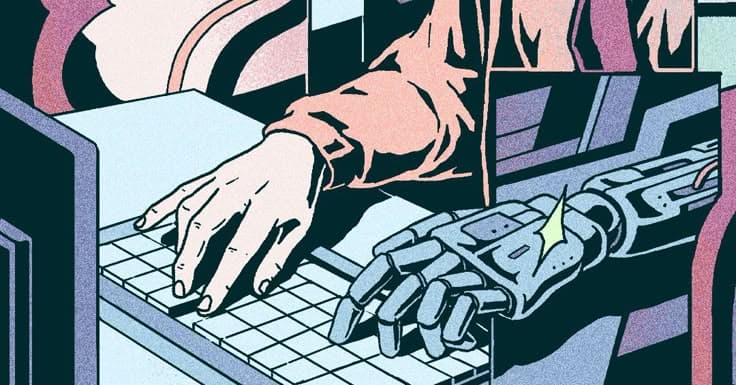Why You Should Let AI Take Your Job
How smart professionals are using AI to automate their way to better remote careers
by Alex Tzo
Writer

The most successful professionals aren't fighting AI - they're using it to replace themselves. Here's why that's the smartest career move you can make right now.
The Inevitable Shift: By the Numbers
Let's start with the hard data:
- 47% of U.S. jobs are at high risk of automation within the next decade (McKinsey Global Institute)
- 375 million workers globally will need to switch careers by 2030 due to AI disruption (McKinsey)
- 40% of all working hours could be automated by AI and machine learning
- 82% of managers believe AI will change their business models within three years (Deloitte)
This isn't theoretical. It's already happening:
"We're seeing AI handle 85% of routine customer service inquiries without human intervention," says Sarah Chen, VP of Operations at SupportLogic. "The agents who thrive are those managing the AI systems, not handling tickets."
Why Remote Workers Have the Advantage
If you work remotely, you're already ahead of the curve. Here's why:
- You're already tool-fluent - Remote work forces you to master digital tools
- You think async-first - You document work clearly, which AI systems can parse
- You're location-independent - You compete on skills, not office presence
The remote workers winning right now are those who:
- Automate 30-50% of their workload using AI tools
- Focus on high-leverage skills AI can't replicate
- Treat AI like a junior team member to delegate to
The Brutal Truth About Job Security
Your current job description is already outdated:
- Customer service: AI chatbots handle most tier-1 support
- Content creation: GPT-5 produces first drafts in seconds
- Coding: GitHub Copilot writes 40% of code for some developers
The question isn't if AI will impact your role - it's whether you'll be the one controlling that automation.
How to Let AI Take Your Job (The Right Way)
1. Identify the Automatable 30%
Start with tasks that:
- Follow predictable patterns
- Consume disproportionate time
- Don't require human judgment
Example: A marketing analyst might automate:
- Weekly performance reports
- Initial data cleaning
- Basic trend spotting
2. Become an AI Manager
The new premium skills:
- Prompt engineering (crafting effective AI instructions)
- Workflow design (stitching tools together)
- Quality control (validating AI output)
3. Double Down on Human Skills
AI still struggles with:
- Complex negotiations
- Creative problem solving
- Emotional intelligence
- Cross-domain strategy
The Bottom Line
Resisting AI is career suicide. The professionals thriving right now are those who:
- Ruthlessly automate their own repetitive work
- Move up the value chain into oversight roles
- Develop the human skills that complement AI
"The best career strategy today is to make your current job obsolete - before someone else does," says Mark Williams, Head of Future Work at BCG.
Your Next Career Move Starts Here
The jobs most resistant to AI disruption share one trait—they require human judgment + tech collaboration. We've curated hundreds of these roles:
Browse AI-Empowered Remote Jobs → See Open Roles @ Djoby
Get Weekly Picks → Subscribe to Our AI-Job Alert
About the Author
Alex Tzo is a cofounder of Djoby, a remote job platform focused on the future of work. She writes about AI, automation, and building sustainable careers in the digital age.